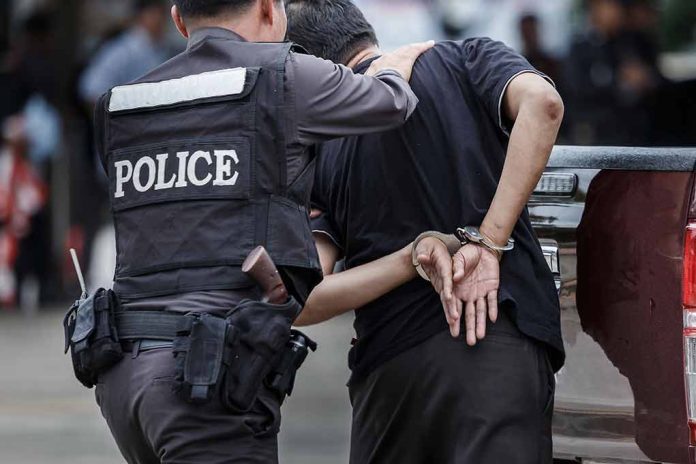
Nine European Union countries are now challenging human rights conventions to deport criminal migrants as nationalist movements surge across the continent.
Key Takeaways
- Nine EU nations led by Italy’s Giorgia Meloni and Denmark’s Mette Frederiksen are pushing to reinterpret the European Convention on Human Rights to enable easier deportation of criminal migrants
- Leaders claim the European Court of Human Rights has excessively expanded the Convention’s scope, limiting their ability to manage foreign criminals
- The coalition includes Austria, Belgium, Czechia, Estonia, Latvia, Lithuania, and Poland, demonstrating growing continental concern about immigration issues
- The proposal seeks greater national autonomy in expulsion decisions and better monitoring capabilities for non-deportable criminals
- Leaders want to address the exploitation of migrants by hostile states like Belarus, which has been accused of weaponizing immigration
European Leaders Push Back Against Migration Constraints
A coalition of nine European Union member states is challenging the current interpretation of human rights law that has hampered their ability to deport criminal migrants. The initiative, spearheaded by Italian Prime Minister Giorgia Meloni and Danish Prime Minister Mette Frederiksen, represents a significant shift in how European nations are approaching immigration enforcement. This conservative bloc argues that existing human rights frameworks, established decades ago, have been stretched beyond their original intent by judicial activism, leaving countries unable to protect their citizens from foreign criminals.
“open a political debate on some European conventions to which we are bound and on the capacity of those conventions, a few decades after they were written, to address the great issues of our time, starting precisely with the issue of the migration phenomenon” Said Giorgia Meloni
The statement, also endorsed by Austria, Belgium, Czechia, Estonia, Latvia, Lithuania, and Poland, directly challenges the European Court of Human Rights, which these nations claim has progressively expanded the European Convention on Human Rights beyond its original scope. This judicial overreach has effectively tied the hands of sovereign nations attempting to manage criminal elements within immigrant populations. The movement represents a growing continental frustration with supranational constraints on immigration enforcement and national security measures.
Reclaiming National Sovereignty in Immigration Enforcement
The coalition is specifically seeking greater autonomy in determining when foreign nationals who commit crimes can be expelled from their territories. Current interpretations of human rights law often prevent deportations based on expansive readings of protections against inhuman treatment or the right to family life. These interpretations frequently override legitimate national security concerns and public safety imperatives, forcing European nations to harbor foreign criminals they cannot legally remove despite serious offenses against their host countries.
For cases where deportation remains impossible under existing frameworks, the nine-nation coalition wants enhanced authority to monitor these individuals effectively. This push reflects a pragmatic approach to a problem that has festered under progressive policies that prioritize the rights of criminal migrants over the safety of law-abiding citizens. The initiative comes amid rising public concern across Europe about crime rates in immigrant communities and the perceived failure of integration policies in many urban centers.
Confronting Weaponized Migration
Beyond addressing criminal deportations, the coalition also aims to counter the growing threat of hostile nations using migration as a geopolitical weapon. The statement specifically references Lithuania’s recent legal action against Belarus for allegedly facilitating illegal border crossings. This aspect of the proposal demonstrates the multifaceted security challenges European nations now face, where immigration enforcement intersects with national defense and counterintelligence priorities in unprecedented ways Stated Mette Frederiksen
The coalition’s push represents a realistic assessment of contemporary threats that existing human rights frameworks, developed in different geopolitical circumstances, fail to address adequately. By calling for a political reassessment rather than a complete abandonment of human rights principles, these European leaders are attempting to balance humanitarian concerns with the practical realities of governance in an era of mass migration, transnational crime, and hybrid warfare tactics employed by adversarial regimes.



